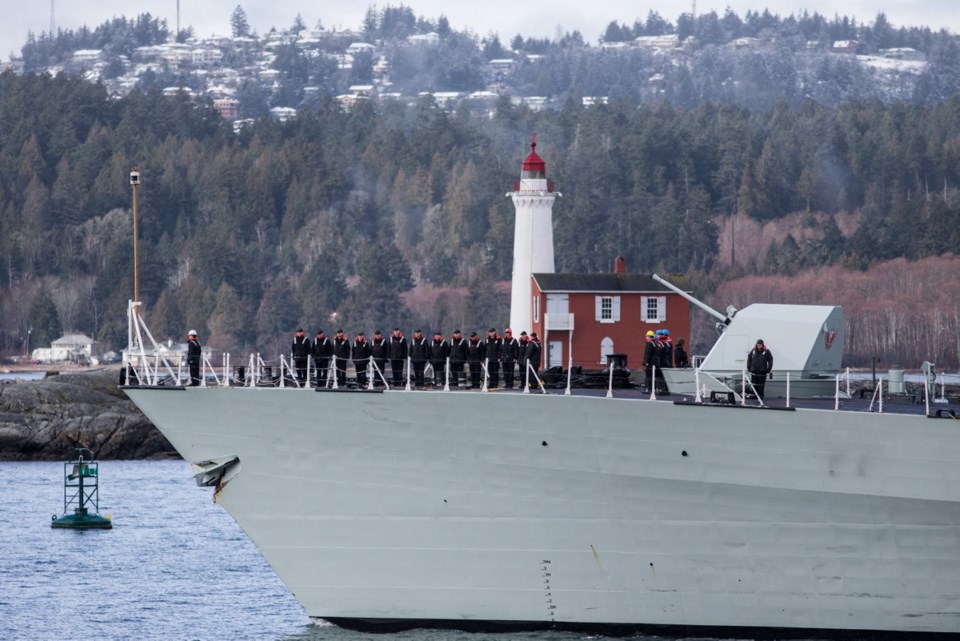The departure of frigates HMCS Ottawa and Winnipeg Monday from CFB Esquimalt is part of what the commander of Canada’s Pacific navy calls a “systematic” buildup of capability.
Rear Admiral Art McDonald said ongoing ship refits and modernization programs over the past years are beginning to allow Canada to project a naval presence across the Pacific.
“We are systematically moving from no capacity in the Indo-Asia Pacific, to [one frigate] Vancouver last year, to [two frigates] Ottawa and Winnipeg this year,” McDonald said. “Next year, we will go out again with two frigates and a [supply ship].”
During the nearly six-month deployment, HMCS Winnipeg and Ottawa will make port visits to the Philippines, Malaysia, India, Sri Lanka, China, South Korea and Japan, while engaging in exercises with partner navies. Training exercises are planned in San Diego and there will be a visit to Pearl Harbor.
McDonald was installed in command of Maritime Forces Pacific on July 22, 2016. He is responsible for the five frigates based in Esquimalt. Besides the two on deployment, there’s also HMCS Regina and Calgary — now in port for refit work — along with HMCS Vancouver.
Canada’s Pacific naval forces also include three submarines — HMCS Chicoutimi, Victoria and Corner Brook — and six Kingston-class coastal patrol ships.
McDonald is career naval officer, a 1990 graduate of the Royal Military College in Kingston, Ont., who has split his career between the Atlantic and Pacific. He said he and his wife are delighted to be in Victoria.
McDonald describes Canada and its military role as largely “expeditionary.”
Defence of the homeland is important, but Canada spends a large part of its military resources in missions overseas. It’s a tradition and a talent for extended outreach that McDonald said the rest of the world has come to expect.
“The heavy lifting that the Canadian Forces are doing across the world is what Canadians are known for,” he said.
Canada’s forces regularly travel overseas to fulfil international responsibilities in bodies such as NATO. They take part in major training operations as allies of the U.S. and other nations. They deploy and support combat troops in such places as Afghanistan, and provide humanitarian assistance during disasters, as in New Zealand after its major earthquake in November.
This year, HMCS Ottawa and Winnipeg will operate together and separately as part of a six-month operation called Poseidon Cutlass 2017.
Next year, when new interim supply vessels have been deployed, Canada will again showcase its expeditionary capabilities. But this time, with an accompanying supply vessel, the two frigates will work more independently, less reliant on shore-side refuelling and resupply of food, McDonald said.



